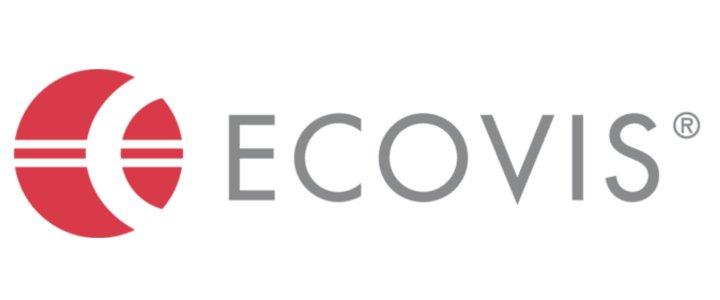Financial institutions such as banks, electronic money and payment service providers, insurance companies, investment managers, investment funds and securities brokers are subject to higher regulation and risk management requirements and licensing is required in almost all jurisdictions, explain the experts from Ecovis. Licensing a financial institution in one of EU member states opens up business opportunities to provide services in all other states of European Economic Area (EEA) and enjoy the benefits of a common market.
A fintech company or other financial institution registered and licensed in one EU/EEA state can enter the European single financial market at significantly lower incorporation and operational costs because there is no need to set up offices and pass the licensing procedures in all the remaining member states. A company incorporated in an EU/EEA member state that has a favourable regulatory environment, infrastructure and ecosystem for foreign investors can achieve a significant competitive advantage in the European financial market.
EU regulations and directives create the single pan-European legal framework of legislation and procedures applicable in all member states. Financial services that can be offered throughout the EU/EEA internal market under the license granted in an EU member state are:
- Traditional banking services under the bank or specialised bank licenses
- Payment processing and payment instrument (card) issue under the electronic money and payment institution licenses
- Investment advice and securities brokerage services under the investment advisory and securities broker licenses
- Investment fund distribution and management under the investment funds management company license
- Insurance, reinsurance and insurance broker services under the insurance company and insurance broker licenses
The European Commission is currently undertaking a new initiative to promote Europe as a more attractive location for start-ups by introducing new regulations on crowdfunding, say the Ecovis colleagues. The Commission has proposed a draft regulation to enable crowdfunding platforms to access customers across the EU under one license issued by one single EU member state. Regulation allowing European start-ups to raise capital through pan-European crowdfunding platforms is expected to come into effect within the next few years.
The one EU/EEA license regime is currently widely used by Chinese and other South East Asian financial service providers coming into the European common financial market.
Ironically, the Brexit process whereby the United Kingdom is leaving the EU, is providing a big push for UK financial institutions to look for a new licensing opportunity in Europe. The City of London was historically the biggest European financial centre, with international banks and other financial institutions situated and licensed there. There is a real threat that after Brexit, all UK issued financial licenses will lose their passport rights into mainland Europe. This is the main reason why most UK licensed financial institutions are currently looking for alternative licensing solutions in mainland Europe. Traditional European financial centres such as Paris and Frankfurt, together with newcomers Dublin and Vilnius, are the most likely destinations for UK companies escaping Brexit.
In 2018, Lithuania issued the second highest number of specialised bank, payment and electronic money institution licenses in the EU, behind the UK. This included the licenses issued for big names such as Revolut and Google. There are more than 100 foreign capital fintech companies operating in the country.
The main reasons why Lithuania is currently seen as one of the main EU jurisdictions for financial institution licensing:
- Business oriented regulatory approach and fast licensing process.
- No requirement for company’s top management to reside in Lithuania or Europe.
- Application for a license can be submitted without establishing a company. Company incorporation only begins after the decision to grant the license is taken.
- Licensing documentation can be submitted in English.
- Possibility for non-banks to receive their own sorting codes to generate client account IBANs and direct access to SEPA through the Bank of Lithuania (Central Bank).
- Remote client verification allowing client accounts to be opened without the physical presence of the client.
- Start-up visa. Special visas for citizens of non-EU/EEA countries running innovative businesses in Lithuania.
For more information please contact
K?stutis Kvainauskas, Partner, Attorney at Law, ECOVIS ProventusLaw, Vilnius, Lithuania
Read the article on our web page.
Das Beratungsunternehmen Ecovis unterstützt mittelständische Unternehmen. In Deutschland zählt es zu den Top 10 der Branche. Etwa 7.500 Mitarbeiterinnen und Mitarbeiter arbeiten in den mehr als 100 deutschen Büros sowie weltweit in Partnerkanzleien in über 75 Ländern. Ecovis betreut und berät Familienunternehmen, inhabergeführte Betriebe sowie Freiberufler und Privatpersonen. Um das wirtschaftliche Handeln seiner Mandanten nachhaltig zu sichern und zu fördern, bündelt Ecovis die nationale und internationale Fach- und Branchenexpertise aller Steuerberater, Wirtschaftsprüfer, Rechtsanwälte und Unternehmensberater. Jede Ecovis-Kanzlei kann auf diesen Wissenspool zurückgreifen.
Darüber hinaus steht die Ecovis Akademie für fundierte Ausbildung sowie für kontinuierliche und aktuelle Weiterbildung. All dies gewährleistet, dass die Beraterinnen und Berater ihre Mandanten vor Ort persönlich gut beraten.
ECOVIS AG Steuerberatungsgesellschaft
Ernst-Reuter-Platz 10
10587 Berlin
Telefon: +49 89 5898-266
Telefax: +49 (30) 310008556
http://www.ecovis.com
ECOVIS AG Steuerberatungsgesellschaft*
Telefon: +49 (89) 5898-266
E-Mail: gudrun.bergdolt@ecovis.com
![]()
